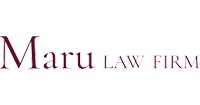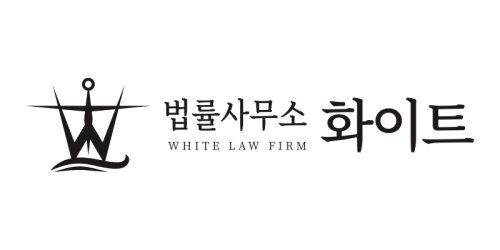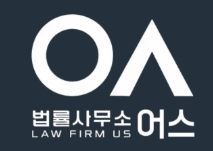Best Immigration Lawyers in South Korea
Share your needs with us, get contacted by law firms.
Free. Takes 2 min.
Or refine your search by selecting a city:
List of the best lawyers in South Korea
About Immigration Law in South Korea
Immigration in South Korea is regulated by the Immigration Control Act, which governs the entry, stay, and departure of foreigners in the country. The Ministry of Justice oversees immigration matters and issues various types of visas for different purposes, such as work, study, or family reunification.
Why You May Need a Lawyer
You may need a lawyer for Immigration in South Korea if you are facing issues with visa applications, residency permits, deportation orders, or other legal matters related to immigration. A lawyer can provide guidance, represent you in legal proceedings, and help you navigate the complex legal system.
Local Laws Overview
Key aspects of immigration laws in South Korea include visa categories, eligibility requirements, visa application procedures, and conditions for staying in the country. It is essential to comply with immigration laws to avoid penalties, such as fines, deportation, or visa revocation.
Frequently Asked Questions
1. How can I apply for a visa to work in South Korea?
To work in South Korea, you need to have a job offer from a South Korean employer and apply for an employment visa through the local consulate or embassy. The employer usually sponsors the visa application process.
2. Can I study in South Korea on a tourist visa?
No, you cannot study in South Korea on a tourist visa. You need to apply for a student visa (D-2 visa) to enroll in a Korean educational institution legally.
3. What are the requirements for obtaining permanent residency in South Korea?
To qualify for permanent residency in South Korea, you must have lived in the country for five years on a valid visa, demonstrate financial stability, and meet other specific criteria outlined in the Immigration Control Act.
4. Can I bring my family to South Korea on a dependent visa?
If you are legally residing in South Korea on a work visa, student visa, or permanent residency, you can apply for a dependent visa (F-3 visa) to bring your spouse and children to live with you in the country.
5. How can I appeal a deportation order in South Korea?
If you receive a deportation order in South Korea, you can appeal the decision within a specified period to the Immigration Office or the Court. It is advisable to seek legal assistance to present a strong case for appeal.
6. Are there any restrictions on changing jobs while on a work visa in South Korea?
While on a work visa in South Korea, you are generally required to work for the employer who sponsored your visa. Changing jobs may require approval from the Immigration Office and compliance with relevant regulations.
7. What are the consequences of overstaying a visa in South Korea?
Overstaying a visa in South Korea is a violation of immigration laws and can result in penalties, such as fines, deportation, and entry bans. It is crucial to adhere to visa expiration dates and seek legal advice if facing such a situation.
8. Can I apply for citizenship in South Korea as a foreigner?
Foreigners can apply for South Korean citizenship through naturalization by meeting specific requirements, such as residency period, language proficiency, knowledge of Korean culture, and renunciation of previous citizenship. The process is detailed and involves multiple stages.
9. What is the process for extending a visa in South Korea?
To extend a visa in South Korea, you need to submit an application to the Immigration Office before your current visa expires. The approval of the visa extension depends on various factors, such as the purpose of stay, financial stability, and compliance with immigration regulations.
10. How can I verify the authenticity of a visa agency or immigration consultant in South Korea?
Before engaging with a visa agency or immigration consultant in South Korea, it is advisable to check their credentials, reputation, and track record. Verify their registration with relevant authorities and seek recommendations from trusted sources to ensure reliability and avoid potential scams.
Additional Resources
For reliable information and support related to Immigration in South Korea, you can contact the Ministry of Justice, the Korea Immigration Service, or reputable law firms specializing in immigration law. Additionally, organizations like the International Organization for Migration (IOM) and local expatriate communities can provide valuable guidance and resources.
Next Steps
If you need legal assistance with Immigration in South Korea, consider consulting a qualified immigration lawyer with experience in handling such cases. Prepare relevant documents, communicate your concerns clearly, and follow the legal advice provided to address your immigration issues effectively. Remember that timely action and compliance with immigration laws are essential for a successful outcome.
Lawzana helps you find the best lawyers and law firms in South Korea through a curated and pre-screened list of qualified legal professionals. Our platform offers rankings and detailed profiles of attorneys and law firms, allowing you to compare based on practice areas, including Immigration, experience, and client feedback.
Each profile includes a description of the firm's areas of practice, client reviews, team members and partners, year of establishment, spoken languages, office locations, contact information, social media presence, and any published articles or resources. Most firms on our platform speak English and are experienced in both local and international legal matters.
Get a quote from top-rated law firms in South Korea — quickly, securely, and without unnecessary hassle.
Disclaimer:
The information provided on this page is for general informational purposes only and does not constitute legal advice. While we strive to ensure the accuracy and relevance of the content, legal information may change over time, and interpretations of the law can vary. You should always consult with a qualified legal professional for advice specific to your situation.
We disclaim all liability for actions taken or not taken based on the content of this page. If you believe any information is incorrect or outdated, please contact us, and we will review and update it where appropriate.
Browse immigration law firms by service in South Korea
South Korea Attorneys in related practice areas.
Browse immigration law firms by city in South Korea
Refine your search by selecting a city.
















